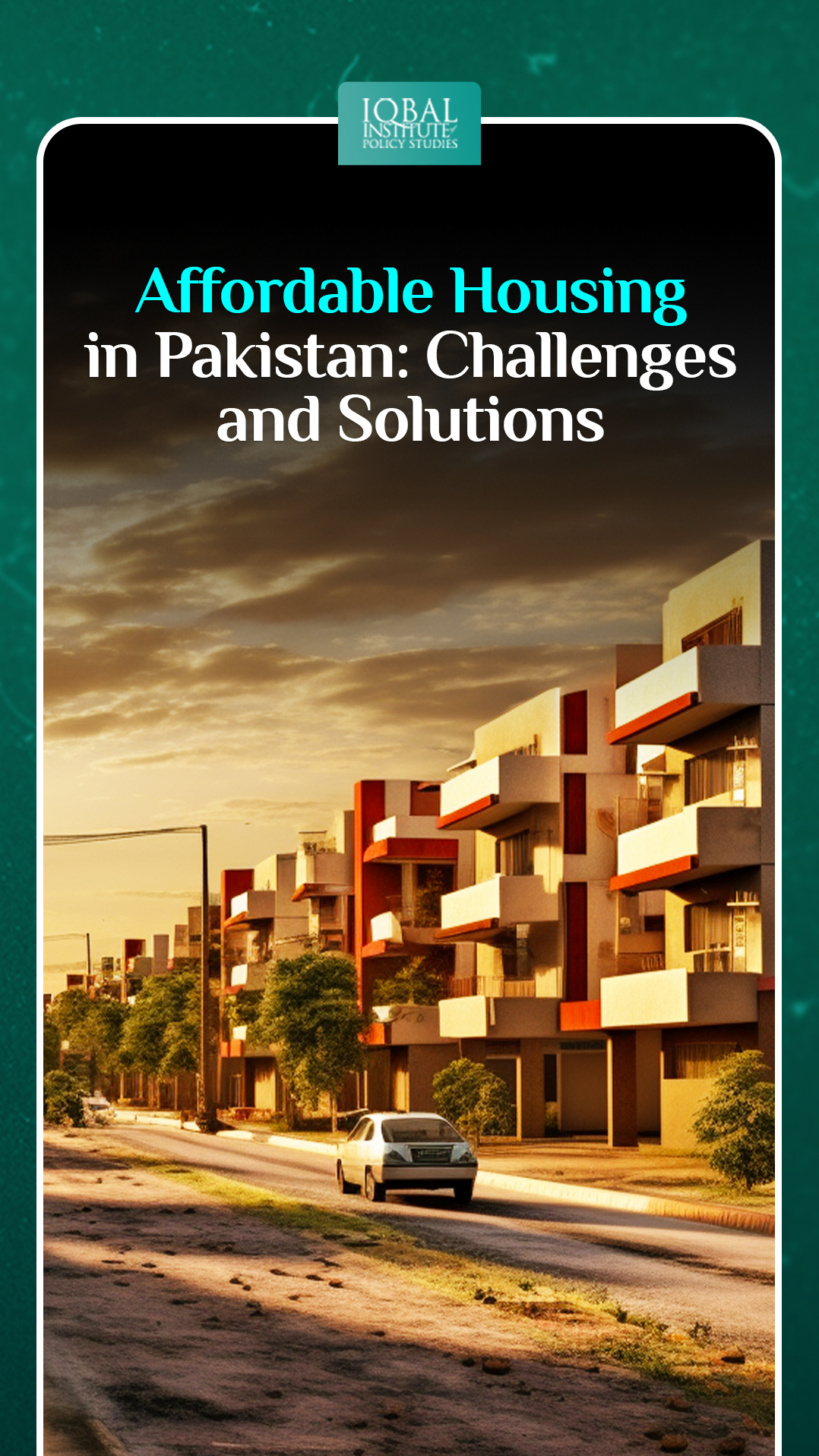Affordable housing is a critical issue that has garnered increasing attention in Pakistan in recent years. As the country’s population continues to grow, the demand for safe, decent, and affordable housing options has escalated. However, the availability of affordable housing remains a significant challenge, posing multiple obstacles for individuals and families across the nation.
Shortage of Affordable Housing in Pakistan
The shortage of affordable housing in Pakistan is a multifaceted problem with far-reaching implications. The rapid urbanization and population growth, coupled with limited resources and inadequate urban planning, have resulted in an ever-widening gap between housing supply and demand. This disparity has particularly affected low-income individuals and marginalized communities, pushing them towards substandard living conditions, informal settlements, or homelessness. Various factors contribute to the challenges in achieving affordable housing in Pakistan. Firstly, the absence of comprehensive housing policies and regulations hinders the development of affordable housing projects. Insufficient coordination and lack of clear guidelines often impede progress in this sector. Additionally, high land prices and development costs make it financially unfeasible for developers to offer affordable housing options. Limited access to financing and mortgage facilities further exacerbates the situation, preventing many individuals from realizing their dream of owning a home.
Challenges in Achieving Affordable Housing in Pakistan
Lack of adequate housing policies and regulations:
One of the key challenges in achieving affordable housing in Pakistan is the lack of comprehensive housing policies and regulations. The absence of clear guidelines and standards hinders the development of affordable housing projects. Without proper frameworks in place, developers face uncertainty and potential obstacles during the planning and construction phases. This lack of clarity and coordination slows down the process of providing affordable housing options and contributes to the overall housing crisis.
High land prices and development costs:
High land prices and development costs pose significant challenges to affordable housing in Pakistan. The cost of acquiring suitable land for housing projects, especially in urban areas, has skyrocketed in recent years. Additionally, the expenses associated with obtaining permits, conducting infrastructure development, and ensuring compliance with building codes can significantly inflate the overall development costs. These high costs make it financially unfeasible for developers to provide affordable housing options at affordable price points.
Limited access to financing and mortgage facilities:
Limited access to financing and mortgage facilities is a major hurdle in achieving affordable housing in Pakistan. Many low- and middle-income individuals and families struggle to secure affordable loans and mortgages to purchase or construct their homes. The stringent requirements and high interest rates imposed by financial institutions often exclude a large portion of the population from accessing housing finance. This limited access to financing restricts the affordability of housing options and exacerbates the housing crisis.
Informal settlements and unplanned urbanisation:
Informal settlements and unplanned urbanization present significant challenges to achieving affordable housing in Pakistan. Rapid urbanization and the influx of rural migrants seeking better opportunities have led to the proliferation of informal settlements, also known as slums. These settlements lack basic infrastructure, access to clean water, sanitation facilities, and other essential services. Informal settlements often emerge on public or private land without legal recognition, creating difficulties in providing affordable and sustainable housing solutions for their residents.
Unplanned urbanization exacerbates the housing crisis by straining existing infrastructure and resources. The lack of urban planning leads to haphazard development, overcrowding, and inefficient land use. It becomes increasingly challenging to allocate resources and develop affordable housing solutions in areas that are already burdened by unplanned growth.
The Importance of Affordable Housing
Affordable housing is a fundamental concept that holds significant importance in Pakistan. It refers to housing options that are affordable and within the financial reach of low- and middle-income individuals and families. Affordable housing plays a crucial role in addressing the basic need for shelter and improving the overall quality of life for the population. In Pakistan, the lack of affordable housing has become a pressing issue due to rapid urbanisation, population growth, and economic disparities. As more people move to cities in search of better opportunities, the demand for affordable housing has escalated. However, the supply of affordable housing has not kept pace with this demand, resulting in a housing crisis that affects millions of Pakistanis.
The importance of affordable housing in Pakistan cannot be overstated. It is a key factor in reducing poverty and inequality. Adequate housing provides stability and security for individuals and families, allowing them to live in safe and healthy environments. Affordable housing also promotes social cohesion and community development by providing a sense of belonging and a platform for interaction among residents. Moreover, affordable housing contributes to economic growth and development. It generates employment opportunities in the construction industry, stimulates local businesses, and drives economic activity in surrounding areas. By providing affordable housing options, the government can facilitate social mobility and empower individuals to improve their living conditions and economic prospects. Furthermore, affordable housing has a positive impact on the environment. Well-planned affordable housing projects can incorporate sustainable design principles, energy-efficient technologies, and green spaces. This not only reduces the carbon footprint but also enhances the overall livability and resilience of communities.
Addressing the Challenges
To overcome these challenges and achieve affordable housing in Pakistan, concerted efforts from the government, private sector, and civil society are necessary. The government should prioritise the development of comprehensive housing policies and regulations that provide clear guidelines and standards for affordable housing projects. Encouraging public-private partnerships can help leverage expertise and resources to address the affordability issue effectively. Efforts should also focus on reducing land prices and development costs through measures such as land-use planning, facilitating land banks, and providing incentives for affordable housing developments. This can help make affordable housing projects economically viable for developers and investors.
Improving access to financing and mortgage facilities is crucial to making affordable housing more attainable. Financial institutions should develop flexible loan products and relaxed eligibility criteria tailored to the needs of low- and middle-income homebuyers. Government-backed mortgage guarantee programs and subsidies can also play a significant role in increasing access to housing finance. Tackling informal settlements and unplanned urbanisation requires a multi-faceted approach. Upgrading existing informal settlements by providing basic infrastructure, legal recognition, and tenure security can improve living conditions for residents. Simultaneously, urban planning should be prioritized to ensure efficient land use, infrastructure development, and the provision of affordable housing options in planned urban areas.
The Way Forward
The challenges in achieving affordable housing in Pakistan are complex and multifaceted, but they are not insurmountable. The lack of adequate housing policies and regulations, high land prices and development costs, limited access to financing and mortgage facilities, and the proliferation of informal settlements and unplanned urbanization all contribute to the housing crisis in the country. However, with concerted efforts from the government, private sector, and civil society, these challenges can be addressed and affordable housing can become a reality for all Pakistanis. To overcome the lack of adequate housing policies and regulations, the government needs to prioritize the development of comprehensive frameworks that provide clear guidelines and standards for affordable housing projects. This will create a supportive environment for developers and investors and streamline the process of providing affordable housing options.
High land prices and development costs can be mitigated through measures such as land-use planning, land banking, and incentives for affordable housing developments. By reducing the financial burden on developers, the affordability of housing options can be improved, making them more accessible to low- and middle-income individuals and families. Limited access to financing and mortgage facilities is a significant hurdle that can be addressed through the development of flexible loan products and relaxed eligibility criteria by financial institutions. Government-backed mortgage guarantee programs and subsidies can also play a crucial role in increasing access to housing finance, allowing more people to realize their dream of homeownership. Informal settlements and unplanned urbanization require a comprehensive approach that includes upgrading existing settlements, providing basic infrastructure and services, legal recognition, and tenure security. Simultaneously, planned urbanization and sustainable urban planning practices should be prioritized to ensure efficient land use and the provision of affordable housing options in well-designed urban areas.
Conclusion
Achieving affordable housing in Pakistan requires collaborative efforts and a multi-pronged approach. By addressing the challenges of inadequate policies, high costs, limited financing, and unplanned urbanisation, Pakistan can make significant progress in providing affordable and inclusive housing options for its population. Affordable housing is not just a basic need; it is a catalyst for social and economic development, poverty reduction, and improved quality of life. With the right strategies, commitment, and cooperation, affordable housing can become a reality, creating a more equitable and prosperous Pakistan for all its citizens.
This article is written by Shahmeer Adnan. Shahmeer is a Research Analyst at the Iqbal Institute of Policy Studies (IIPS).



Leave a Reply